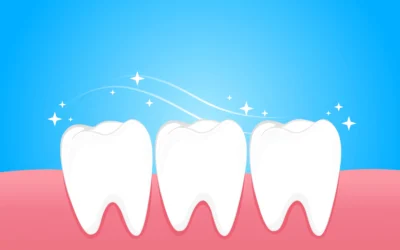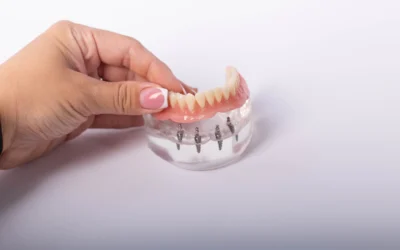Usually between the ages of 17 and 21, wisdom teeth grow and appear as the third set of back molars in your mouth. It’s rare for wisdom teeth not to cause any pain or problems, and most people opt to have their wisdom teeth removed.
A dentist or oral surgeon may recommend wisdom teeth extraction to an individual due to:
- Limited space: Your mouth may be too small and not have enough room for more molars, so it’s best to remove the extras before they cause problems.
- Erupted wisdom tooth: As soon as the tooth cuts through the gum, it’s considered “erupted.”
- Gum disease or cavities: Even if your wisdom teeth erupt, and it’s not painful, your dentist may still recommend removal to prevent early stages of gum disease or cavities from forming. This prevents any further periodontal disease and tooth decay.
- Impacted wisdom tooth: The tooth is impacted when it’s stuck under the surface of the gums tissues and starts to grow while it’s stuck.
- Jaw pain or pericoronitis: When wisdom teeth partially erupt, it produces jaw pain and swelling of the gum tissues, called pericoronitis, usually in the lower molars.
- Partially erupted wisdom tooth: The tooth may partially be through the gum and growing in an odd direction.
Advice, Diagnosis, or Treatment
How Should You Prepare Before a Wisdom Tooth Surgery?
Before a wisdom tooth extraction, you’ll have plenty of opportunities to ask any questions about the surgery. Ask your oral surgeon if the surgery will affect any orthodontic treatment you’ve already received, how long the recovery time is, or what kind of anesthesia they plan to use.
Be sure to inform the doctor of your current medications and any known allergies you have to certain medications. Plan to have time off from school or work for recovery, and make sure you have a driver to take you home after the procedure.
The doctor will discuss with your family, or whoever is there to drive you home, your post-op care and estimated recovery time. Be sure to follow all of the surgeon’s instructions. For a medical emergency, dial 9-1-1.
What Should You Expect During Wisdom Tooth Surgery?
While you are in surgery, you should not experience any tooth pain. If you are awake and numbed, let the surgeon know immediately of any pain you experience. Fortunately, the surgery should only last for about 45 minutes.
What Should You Do After Wisdom Tooth Surgery?
After surgery, you will probably experience swelling and soreness for the next couple of days. For the first few days after your surgery, be sure to:
- Eat only soft foods
- Drink plenty of water
- Take recommended or prescribed medication
- Use an ice pack to reduce swelling
- Swish with warm salt water to avoid infections and dry socket
Call My Emergency Dental for Your Oral Surgery Near Atlanta, GA
If your dentist has recommended removing your erupted, broken, or decaying wisdom teeth, call My Emergency Dental at 470-523-8118 in the Greater Atlanta area to schedule the extractions. If your wisdom teeth are impacted or partially impacted, you will still need to see a dentist for an x-ray and referral to an oral and maxillofacial surgeon. Book an appointment with us today so we can move the process along for you and get you seen.
Feel free to schedule an appointment, but walk-ins are welcome, too. You can’t plan for emergencies – that’s why we’re here for you 7 days a week. For more information about wisdom teeth extraction, take a look at a professional systematic review.



